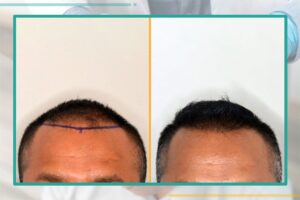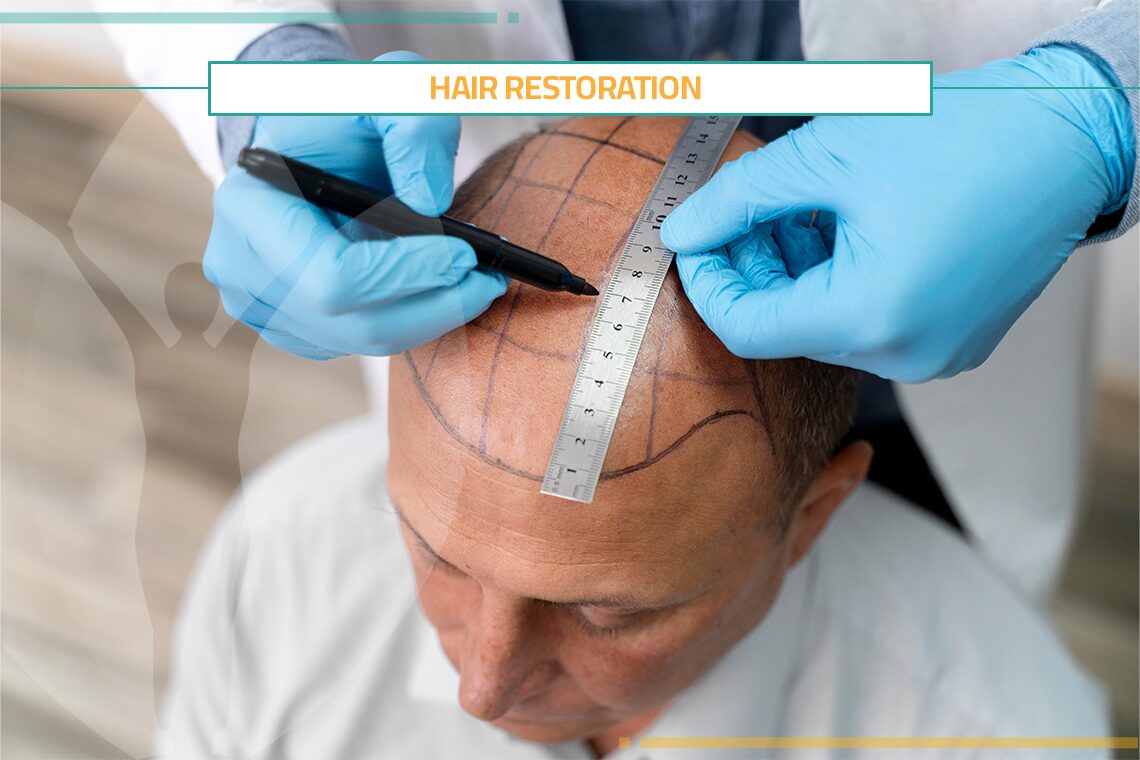What`s Hair Restoration?
Hair Restoration is a treatment where a dermatologist or plastic surgeon transplants hair into a bald spot on the head. Typically, the surgeon transfers hair from the side or back of the head to the top or front.
Under local anesthetic, hair transplants usually take place in a doctor’s office. The bulk of hair loss is caused by pattern baldness. Genetics is the key here. The reasons behind the remaining cases include:
– Diet-related stress disorders
– Drugs for hormonal imbalances
Why Pick Natural Beauty Turkey for Your Hair Transplant?
Natural Beauty Turkey, which consistently captures everyone’s attention with its effective work in the evolving and changing health sector, gained popularity in both the domestic and foreign press due to its excellent outcomes. Successful works have proliferated throughout a wide range of sectors, and they are based on earlier noteworthy outcomes.
With its skilled medical professionals in their fields, Natural Beauty Turkey, which is favored by many nations, particularly in the US and Europe, aims to raise the standard of services globally.
Hairline Transplant
Doctors refer to a hair transplant that restores a receding hairline as a “hairline transplant.” The hair around your forehead and temples begins to fall out if your hairline is receding. Your hairline recedes, or moves backward, as a result. Male pattern baldness, the most prevalent cause of hair loss in individuals assigned male at birth (AMAB), is characterized by a receding hairline.
Is Hair Restoration Permanent?
Permanent hair transplants are the goal. You can take care of your transplanted hair just like you would your natural hair, including brushing, combing, and washing, once your doctor gives the all-clear. Nevertheless, a tiny percentage of hair grafts may fall out and some may not survive.
The Reality of Hair Loss
Baldness is frequently attributed to dandruff, inadequate circulation to the scalp, vitamin deficiencies, and even wearing hats too much. These theories have all been shown to be false. It’s also not true that men in their 40s who haven’t lost their hair will never do so, or that you can tell if you’re losing your hair by looking at your maternal grandpa.
The main causes of hair loss are a mix of:
– Growing older.
– A shift in hormones.
– A history of hair loss in the family.
– Generally speaking, baldness will worsen the earlier hair loss starts.
Artificial Hair Transplants
Artificial hair transplants use synthetic fibers instead of human hair to replace lost hair. Originally developed as an alternative to conventional hair transplants, they were banned by the FDA in 1983 due to concerns about safety and effectiveness. However, some individuals may still benefit from artificial hair transplants due to lack of donor hair or certain types of alopecia. Side effects may occur due to foreign materials, so it’s crucial to consult a board-certified doctor with expertise in hair loss treatment.
For Whom Is Hair Replacement a Viable Option?
Hair replacement surgery might be an option for you if you:
– Are doing well.
– Have reasonable expectations for the outcome of hair restoration.
– You still have dense hair growth in some places on your head.
Hair Transplant Price
Depending on the degree of hair loss, the surgery, and the caliber of the clinic and its staff, a hair transplant in the Turkey can cost anywhere from £1,000 to £30,000.
Medical Complications following Hair Transplant Surgery
Talk to your doctor about the following spectrum of medical concerns prior to the procedure:
1. Physical health: an examination will assist your doctor in determining whether the treatment is appropriate;
2. Medical history: certain pre-existing conditions and previous surgeries may impact the type of anesthetic used during this procedure;
3. Hair evaluation: this includes your hair growth pattern, the degree of your hair loss, the history of hair loss in your family, and any previous surgical or medical treatments for hair loss you may have received.
4. Dangers and potential side effects: it’s critical to comprehend the risks and side effects in order to determine whether a hair transplant is the best course of action for you.
5. Inform your doctor about any medications you currently take or have recently taken, including over-the-counter products like fish oils and vitamin supplements.
6. You should also disclose any past adverse drug reactions to your doctor, including anesthesia.
Hair Transplant Surgery Complications
Every surgery has a certain amount of risk. The following are a few potential side effects of hair transplant surgery:
- Risks associated with general anesthesia, such as allergic reactions, which can (in rare cases) be fatal;
- Surgical risks, such as severe, elevated, reddened, and itchy scars from bleeding or infection;
- Nerve damage, including irreversible loss of sensation;
- Death of skin grafts; tissue death along the wound; and additional surgery to treat complications.
This list is not exhaustive. For instance, you may be more susceptible to certain issues due to your lifestyle or medical history. For additional information, consult your physician.

Things to Consider before Hair Transplant
If you’re considering a hair transplant in Turkey, find out if the hospital or clinic is registered with the Care Quality Commission (CQC). In Turkey, all private clinics and hospitals offering cosmetic surgery are required to be CQC-registered. When looking for hair transplant clinics online, use caution. Some people pay to have their services shown in search results.
Following Hair Transplant Surgery, Self-Care
Follow your doctor’s instructions. Some general ideas for self-care are:
– Take care of your wounds according to all guidelines.
– Exercise and other demanding activities that raise blood pressure should be avoided since they can cause your wounds to hemorrhage. Your doctor could suggest that you refrain from having sex for ten days or so.
– Inform your doctor of any bleeding, excruciating pain, or strange symptoms.
Hair Implants Alternatives
The following are non-surgical substitutes for hair transplant surgery:
1. Pharmaceutical drugs, wigs, hair pieces, or hair extensions, and lotions.
2. Speaking with a counselor or psychologist can help you get past your worries about your looks and come to terms with the fact that hair loss is a normal aspect of aging.
Natural Beauty Turkey: The Highest Quality of Hair Restoration
For optimal results, we recommend combining the Sapphire FUE technique with DHI in our flagship procedure, Micro Sapphire DHI. A DHI implanter pen is used to transplant the hair grafts, providing them with total protection and enabling incredibly precise placement for a hairline that looks believable.
Because Micro Sapphire DHI produces the most realistic, natural-looking hairline and has the highest graft survival rate for transplanted hair, it is the surgery of choice at our clinic. Naturally, we only use the newest technology to meet and beyond the most exacting standards for a hair transplant in Istanbul.





